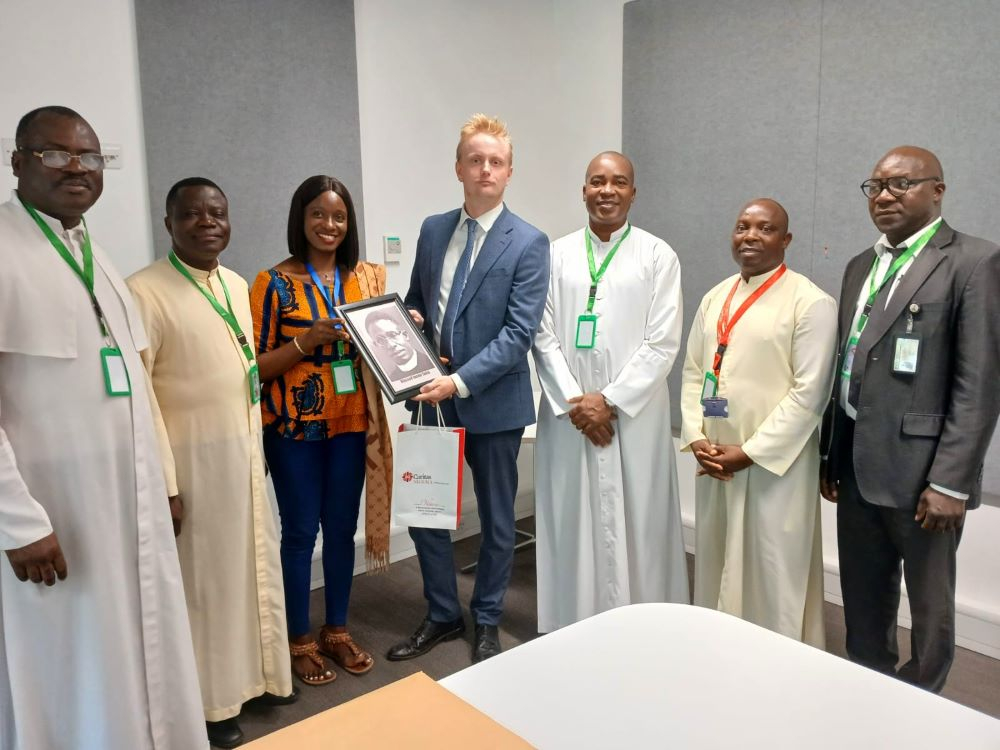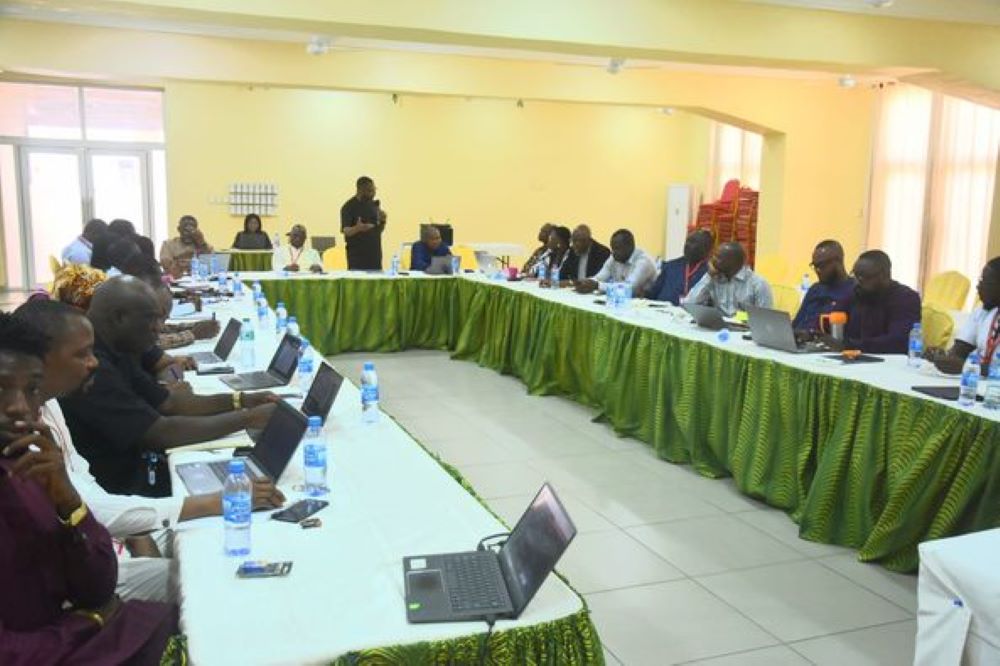NATIONAL SECURITY: CHALLENGES FOR CHURCH AND SOCIETY IN NIGERIA
Statement by Most Rev. Matthew Man-Oso Ndagoso, Episcopal Chairman of Church and Society Department, Catholic Secretariat of Nigeria, Abuja, at the 2021 Annual General Meeting of Church and Society
Preamble: National Security, which occupies the highest level of priority in the hierarchy of interests for any society, is a major concern of Government. The safety of life and property of citizens and provision of an environment devoid of danger, is the primary responsibility of those persons entrusted with the privilege to govern. It is one of the core values that States cherish as non-negotiable, and that do not admit compromises. This fact is made important in section 4 of the 1999 Nigerian constitution as amended.
According to the United Nations Office for the Coordination of Humanitarian Affairs (UN OCHA), national security entails a wide range of security measures such as:
- Economic: creation of employment and measures against poverty;
- Food: measures against hunger and famine;
- Health: measures against disease, unsafe food, malnutrition and lack of access to basic healthcare;
- Environmental: measures against environmental degradation, resource depletion, natural disasters and pollution;
- Personal: measures against physical violence, crime, terrorism, domestic violence and child labour
- Community: measures against inter-ethnic, religious and other identity tensions;
- Political: measures against political repression and hum rights abuses.
It is evident that Nigeria today, is struggling with all of the above areas that make up national security.
There is a general tendency in Nigeria and perhaps in most developing countries, to equate military security with national security whereas national security is all-embracing of the seven segments listed above. None of them can stand alone, as they are indeed interconnected. It is therefore futile to think that once the military are moved to troubled areas, the country is secure.
Presently, food inflation stands at nearly 20%, with the most citizens unable to afford a regular and balanced diet, traveling in Nigeria is fraught with danger and uncertainty, apart from the appalling road infrastructure, even at home, life is not safe because armed robbers, assassins, Boko Haram, kidnappers, herdsmen and murderers can strike at any time of the day. Peace has become elusive and a mirage.
The situation cannot change for the better unless the political class, men and women, saddled with the leadership of the country convince themselves of the basic dignity of all citizens as human beings created in the image and likeness of GOD, and resolve to work for the common good of all irrespective of religion or ethnicity or region.
Nigeria has already been ranked the poverty capital of the world. Similarly, she is ranked as 146th on Global Peace Index, and as the 8th least peaceful nation in Africa. In this vein, Nigeria is seen as one of the most unsafe places to bring up a child. This is reflected in the number of Nigerian youths who troop embassies for migration purposes. Our leaders cannot continue with their business as usual attitude towards governance. There must be a deliberate effort towards changing the perception of our country as a place where nothing works, where there is no future for youths, where corruption is the order of the day or where, as Thomas Hobbes put it, "the life of man is solitary, poor, brutish and short".
The Church has been a major victim of the insecurity in the North West and North East, where members and the infrastructure are primary targets or become collateral damage in the ensuing violence. Many of these incidents call for a concise effort by governments at all levels, to live up to their responsibilities of providing a safe environment for citizens to carry out their secular and religious activities.
The escalating insecurity in the South East is a clear pointer to the marriage between politics and security. Where there is no equity, inclusiveness and level playing field and a sense of belonging to all citizenry, the tendency is violent agitation. Government must deescalate tensions by ensuring that soldiers operate with the ambit of human rights, especially in the South-South, South East and South West.
There has never been a more critical time than now for all stakeholders, including the Church, to come together and help in salvaging our nation. As a Church, we have spoken, we have engaged with political leaders to no avail. The President must now show that he respects the wishes of the people for a peaceful and just society by signing the new Electoral Bill into law, as one of the guarantees to a safe and peaceful society seems to be through a genuine electoral process which ensures the emergence of credible persons into governance. On our part, we shall continue to serve the people in our capacities and competence and nurture that hope which endures beyond politics and economics.
Signed
Most Rev. Dr. Matthew Man-Oso Ndagoso






